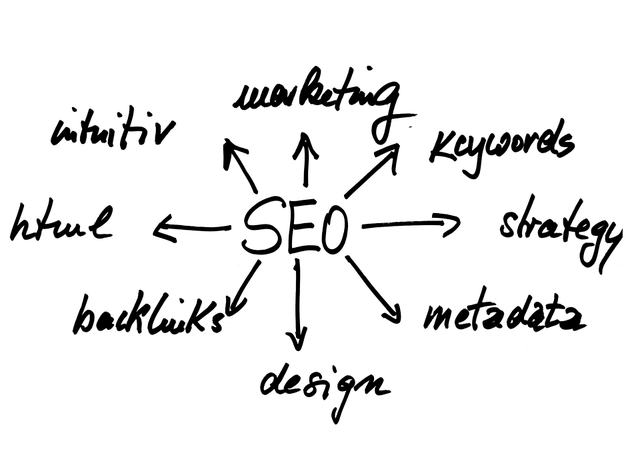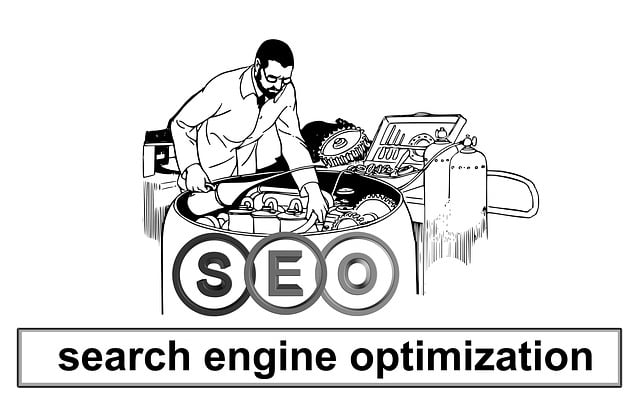Professional SEO Programs are crucial for navigating today's dynamic digital landscape, offering advanced skills in on-page & off-page optimization, data analysis, and understanding user behavior. These programs empower marketers with tools to interpret analytics, drive organic traffic, and elevate search rankings, making them highly sought-after professionals. By integrating AI and focusing on semantic search, future programs will ensure SEO specialists stay ahead in a rapidly evolving digital environment, enhancing user experiences and driving business success.
“Welcome to Analytics SEO University, where we explore the dynamic intersection of data-driven marketing and career advancement. In today’s digital age, understanding the modern SEO landscape is paramount for professionals aiming to excel. This comprehensive guide delves into specialized Professional SEO Programs as catalysts for growth, uncovering benefits from advanced analytics tools to ethical practices. Join us as we navigate successful case studies, future trends, and the essential strategies for implementing data-driven SEO decisions.”
Understanding the Modern SEO Landscape: A Professional's Perspective

In today’s digital era, the modern SEO landscape is a complex and ever-evolving field that demands a strategic approach from professionals. It’s more than just keyword optimization; it involves understanding user behavior, algorithmic changes, and diverse marketing channels. Professional SEO programs are designed to equip individuals with the skills to navigate this labyrinthine environment effectively. These programs offer in-depth knowledge about on-page and off-page optimization techniques, enabling students to stay ahead of the curve in a rapidly changing digital world.
The key to success lies in recognizing that successful SEO is not merely about following trends but anticipating them. Professional SEO programs foster this forward-thinking mindset by teaching students how to analyze data, interpret analytics, and make informed decisions. With a comprehensive understanding of search engine algorithms and user preferences, professionals can ensure their strategies remain effective, even as the digital landscape continues to transform and evolve.
The Benefits of Specialized SEO Programs for Career Growth

Specialized SEO programs offer a multitude of benefits for career growth in the digital marketing landscape. These programs are designed to provide in-depth knowledge and practical skills in search engine optimization, equipping individuals with the tools needed to excel in this competitive field. By focusing on specific aspects of SEO, such as technical SEO, content strategy, or local SEO, professionals can develop a deep understanding of their area of expertise, making them highly sought-after specialists.
In today’s fast-paced digital era, where online visibility is crucial for business success, Professional SEO Programs empower individuals to navigate the complex world of search engine algorithms and user behavior. Graduates of these programs often find themselves in high demand, as businesses recognize the value of expert SEO practitioners who can drive organic traffic, improve search rankings, and ultimately boost conversions. This specialized knowledge allows professionals to contribute significantly to their organizations’ online success and advance their careers within this dynamic industry.
Unlocking Advanced Analytics: Tools and Techniques for SEO Experts

Advanced analytics is an indispensable toolset for any modern SEO expert, offering insights that can significantly enhance their strategies. Professional SEO programs often incorporate sophisticated tools and techniques to unlock these valuable data points. By delving into complex algorithms and user behavior patterns, SEOs can make informed decisions about content optimization, keyword targeting, and overall website performance.
These advanced analytics platforms provide detailed reports on user engagement, allowing experts to identify areas of improvement. From heatmaps that visualize visitor interactions to A/B testing tools that compare different web page versions, these resources enable professionals to refine their SEO strategies with precision. As the digital landscape evolves, staying ahead means embracing these innovative techniques and leveraging them to stay at the forefront of search engine optimization.
Strategies for Implementing Data-Driven SEO Decisions

In today’s digital era, data is king, and this is especially true for SEO strategies. One of the most effective ways to stay ahead in the game is by enrolling in professional SEO programs that teach data-driven decision-making. By analyzing extensive datasets, marketers can uncover valuable insights into user behavior, search trends, and keyword performance. These insights are crucial for optimizing content, refining website architecture, and identifying high-value keywords that drive organic traffic.
Implementing data-driven SEO requires a structured approach. It starts with defining clear goals, such as increasing visibility, boosting conversion rates, or targeting specific demographics. Then, leverage robust analytics tools to gather and interpret data. This might involve tracking click-through rates (CTRs), average session durations, bounce rates, and more. Once the data is understood, professionals can make informed decisions about content updates, meta tag optimizations, and technical SEO improvements, ensuring that each change aligns with the university’s overall marketing strategy.
Case Studies: Successful SEO Campaigns and Their Impact

Successful SEO campaigns offer a wealth of insights for aspiring marketers and professionals in the field. By studying case studies, we can gain a deeper understanding of effective strategies that drive organic traffic and improve online visibility. These real-world examples provide tangible proof of how well-executed SEO initiatives can transform businesses, boosting their online presence and increasing conversions.
One prominent example involves a leading e-commerce brand that utilized professional SEO programs to optimize its product pages. Through keyword research, on-page optimization, and strategic content creation, they improved their search rankings significantly. As a result, the brand experienced a 35% increase in organic traffic within six months, leading to higher sales and a more substantial market share. This case study highlights the power of data-driven SEO approaches and the tangible benefits they can deliver.
Ethical Considerations in SEO Practices: Navigating Industry Standards

In the dynamic landscape of digital marketing, ethical considerations in SEO practices have become paramount. As professionals navigate the ever-evolving industry standards, adhering to best practices ensures the integrity and sustainability of online visibility for websites. Ethical SEO focuses on strategies that enhance user experience while maintaining transparency and avoiding manipulative tactics commonly associated with black-hat SEO methods.
Professional SEO programs emphasize the importance of keyword research, high-quality content creation, and technical optimization within established guidelines. By fostering a culture of responsible marketing, these programs equip practitioners to make informed decisions that drive organic traffic without compromising search engine algorithms or user satisfaction. This approach not only enhances search engine rankings but also builds long-lasting online reputations for businesses and their partners.
Future Trends in SEO Education: Adapting to Digital Evolution

As technology advances and digital landscapes evolve, so too does the landscape of search engine optimization (SEO). Future trends in SEO education will need to adapt to these changes, ensuring that professionals are equipped with the latest skills and knowledge required to thrive in an ever-changing digital world. One key area of focus will be on staying ahead of algorithm updates from major search engines like Google. These updates often significantly alter how websites are ranked, necessitating continuous learning and adaptation among SEO practitioners.
Professional SEO programs will need to incorporate modules on emerging technologies such as artificial intelligence (AI) and machine learning, which are increasingly being leveraged by search engines to improve results. Additionally, with the rise of voice search and virtual assistants, understanding semantic search and optimizing content for these new interfaces will become crucial. Staying at the forefront of these developments ensures that SEO professionals can not only navigate but also shape the digital future, delivering optimal online experiences for users and driving business success.
